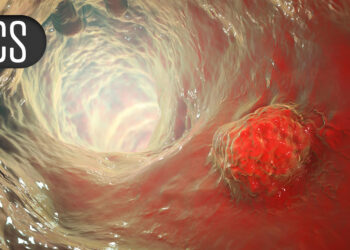
- A new clinical trial challenges the long-held medical advice that coffee triggers a common type of heart arrhythmia.
- Results of a new trial found that adults with atrial fibrillation (AFib) who drank coffee daily had a significantly lower risk of recurrence than non-coffee drinkers.
- The findings suggest that moderate coffee consumption may protect the heart from arrhythmia.
Coffee is the most popular beverage in the United States, with approximately two-thirds of adults consuming it daily.
For people with atrial fibrillation (AFib) and those at risk for it, conventional medical wisdom has long advised cutting back or avoiding coffee altogether.
However, this idea has come under increasing scrutiny in recent years, and recommendations surrounding coffee and AFib remain mixed.
Now, a new clinical trial challenges long-standing medical advice, suggesting that coffee may not trigger AFib episodes and could even reduce their frequency.
In the aptly named DECAF randomized controlled trial, researchers found that among 200 adults with diagnosed AFib, those who drank coffee daily had fewer recurrent episodes than those who avoided caffeine entirely over a six-month period. The trial results were published on November 9 in
“There have been conflicting thoughts about whether coffee affects atrial fibrillation,” said Gregory Marcus, MD, a cardiologist and professor of medicine at the University of California, San Francisco, and senior author of the research.
“To our knowledge, this is the only long-term randomized trial of caffeinated coffee on any cardiovascular endpoint. It suggests that caffeinated coffee may protect against atrial fibrillation, at least among people that otherwise enjoy and tolerate caffeinated coffee,” Marcus told Healthline.
Rod Passman, MD, a professor of medicine and director of the Center for Arrhythmia Research at Northwestern University, who wasn’t involved in the research, praised the trial.
“This is an important study that calls into question the lifestyle advice that we often give patients without clearly supportive data,” Passman told Healthline.
Marcus and his team recruited 200 patients with a history of AFib or atrial flutter for the trial.
The average participant was 69 years old; most participants were males (71%) and identified themselves as white (80%). All were regular coffee drinkers, averaging about one cup per day.
The patients were enrolled immediately after successful cardioversion therapy, a treatment that uses an electrical impulse or medication to restore a healthy heart rhythm.
Half of the participants were randomly assigned to either continue drinking coffee daily or completely abstain from all caffeinated products, including coffee and even decaffeinated coffee. Over a six-month period, researchers recorded any recurrence of AFib or atrial flutter lasting at least 30 seconds.
At the end of the trial, 47% of coffee drinkers experienced an episode of AFib, compared with 64% of those who abstained. This represents a 40% lower risk of AFib recurrence among individuals who regularly consume coffee.
“For people that enjoy drinking caffeinated coffee, they should not avoid it for fear that it’s going to worsen their atrial fibrillation. That’s the most conservative perspective on this. Now, whether it makes sense to actually encourage consumption of caffeinated coffee, that will require further study,” Marcus said.
What explains the reduced AFib risk among coffee drinkers isn’t yet clear. The authors suggest several possible mechanisms, though the study doesn’t provide direct evidence for any of them.
Caffeine is known to block adenosine receptors, which is one of the ways it makes you feel more alert. Adenosine is a naturally occurring chemical in the body that makes you feel drowsy. It’s part of how the body regulates energy and sleep cycles, but it’s also known to
The authors propose that blocking adenosine may confer antiarrhythmic properties to caffeine.
“Coffee, as we know, naturally contains antioxidant properties, such as chlorogenic acids and melanoidins, which may act as protective effects for our body and our heart,” said Alyssa Kwan, a clinical dietitian in Cardiology at Stanford Medicine who wasn’t affiliated with the research.
The effects could also be attributed to a healthier lifestyle in general. For example, a 2023 clinical trial found that people in the coffee drinking group walked approximately 1,000 more steps per day than the abstaining group
Although the research suggests that coffee will not worsen your risk for AFib, there are still some important caveats.
First, this study focused exclusively on coffee. Its findings don’t extend to other forms of caffeine, such as energy drinks, supplements, or pills, that people commonly consume today.
“People should absolutely not extrapolate from this study that more caffeine is therefore better,” Marcus said. “All of the observational evidence that caffeine may reduce the risk for AFib is all related to moderate or normal consumption of naturally occurring caffeine, such as in coffee.”
Kwan said that you should also be mindful of what you put in your coffee.
“I would still caution against choosing coffee that might contain high amounts of added sugars or saturated fat, including items like lattes and mochas,” she said.
The bottom line: if you have AFib and enjoy coffee in moderation, your morning coffee likely won’t trigger an AFib episode and may, in fact, lower your risk.
If your doctor advised that you avoid drinking coffee on account of your AFib, you should still consult them before starting regular consumption.
“For many patients with AFib, a cup of coffee is an integral part of their routine. We need more data if we are going to tell people to give up the things they like,” said Passman.
Source link : https://www.healthline.com/health-news/daily-coffee-lowers-afib-recurrence-risk
Author :
Publish date : 2025-11-10 11:25:03
Copyright for syndicated content belongs to the linked Source.











